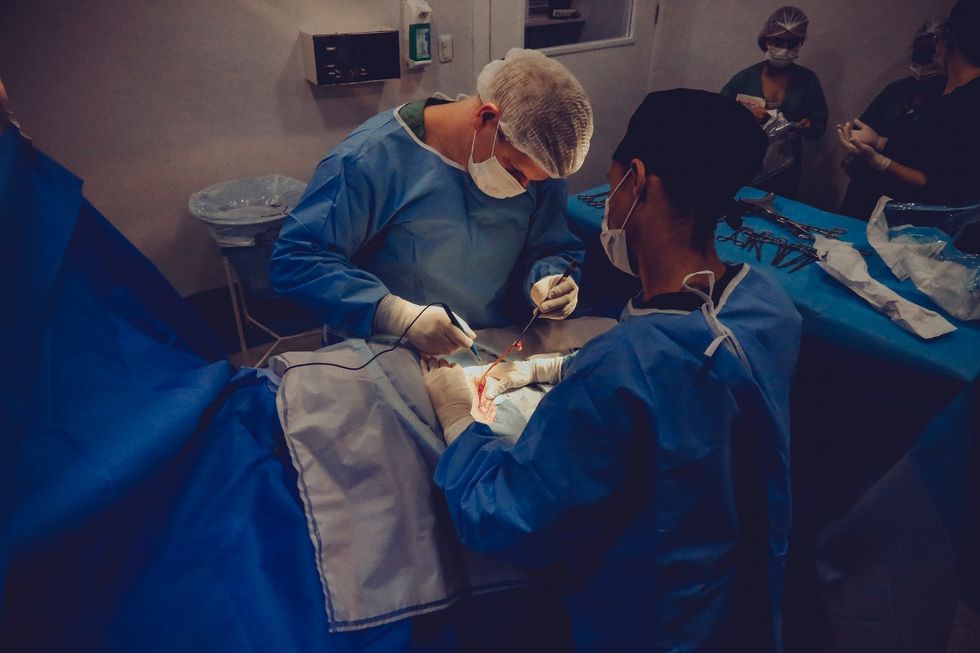Medical school students experience some of the highest levels of stress of all graduate program students. The curriculum is extremely rigorous, in which students must learn a great deal of difficult information with little time to study between frequent exams. Combined with the hundreds of thousands of dollars of tuition pressuring them to succeed, it is no surprise that many medical students experience grievous mental health concerns. In addition to depression and anxiety, other side effects of medical school adversities include sleeping disorders, eating disorders, reduced attention and decreased concentration. These issues then lead to several physiological symptoms, such as extreme fatigue, nausea, headaches and migraines, hormonal imbalances, as well as cause the exacerbation of any existing medical conditions.
To address some of these concerns, the US Medical Licensing Exam (USMLE) program recently changed the scoring system of the Step 1 exam to be pass/fail, effective January 1, 2022. The Step 1 exam is taken after the second year of medical school to evaluate students' abilities to apply important foundational science concepts (anatomy, biochemistry, pathology, pharmacology, epidemiology, etc) to practical medicine. It is an important factor that residency and fellowship programs analyze when reviewing applications for extremely selective positions, as it is a reliable, quantifiable measure of competency.
Though in theory this would be an effective solution for medical students' debilitating mental health, it comes with its own downfalls. Without objective scores defining residency applicants, program directors will turn to other parts of the application -- who the applicant is, where they come from, and who they know. Inevitably, students from more elite medical schools will carry an advantage in the areas of networking, connections, and prestige. This will result in a dramatic surge in competition in the already cutthroat medical school application process. Furthermore, students will be under increased pressure to bolster their resume with numerous leadership activities, service roles, and research/internship positions. They must then also forge strong relationships with faculty and mentors who can significantly influence their applications to residency programs. These additional responsibilities result in an even greater threat to medical students' mental health than ever before.
Unfortunately, even after years of hard work, these efforts may still prove futile. Residency programs may receive over 1,000 applications for just 1-2 positions. After the Step 1 exam becomes pass/fail, subjective methods dependent on the effects of gender, race, ethnicity, socioeconomic status, etc. become much more prominent. Without objective metrics like the Step 1 exam, students from lower backgrounds' successes will go unrewarded. For example someone in this position may score higher on the Step 1 exam than a student from Harvard Medical School, but will lose the battle for a residency position because they lack the opportunities and resources to pursue extraneous activities such as research and leadership.
There certainly is a need to improve the mental conditions of America's future physicians. However, other efforts such as altering the curriculum to provide more study time between exams, or potentially having two and a half years of preclinical education to learn material instead of only two years, may be more appropriate. Preserving the numerical score for the Step 1 exam encourages all students to focus on mastering important material and prove their capabilities as a physician. Especially in the field of medicine, this is crucial. Removing the numerical score of the Step 1 grossly undermines the medical profession, devalues a strong educational foundation, and ultimately detrimentally affects medical practice and patient care. When a loved one falls gravely ill, nobody wants the attending physician to have scored a 65% on their Step 1. In the medical profession, even the smallest mistake resulting in anything less than 100% can cost a life. Physicians must strive to refine their skills to the utmost of perfection. Immaculate judgement and confidence in one's abilities is essential for success in this field. Without the highest quality medical training for those who balance life and death in their hands, the healthcare system and the nation may be in grave danger.











